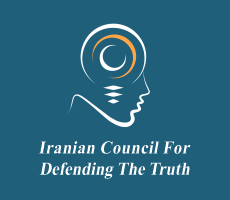The current dominate issue in the Middle East has been the violence taking place in Israel between the Israelites and the Palestinians. This is a tragic conflict with little end in sight, even if the most recent violence is controlled by mutual agreement. In addition, the Middle East continues to be divided between Sunnis and Shiites. So the great challenge of the Middle East historically remains finding some way to bring together the long-divided people of the Middle East.
The Israeli-Palestinian crisis is forcing President Biden to focus on the Middle East. During last month, Biden declared his “strong support for Israel’s right to defend itself.” At the same time, Biden was attempting to appear to be impartial between the two parties, in order to bring the Israelis and Hamas together to negotiate.
The U.S. is very pro-Israeli, but a small group within the Democratic Party is encouraging Biden to support the Palestinians. In both cases, Biden is less overtly pro-Israeli than President Trump, who was publicly close with Prime Minister Netanyahu. The U.S. provides Israel annually with $3.8 billion in military assistance.
Biden would like to focus his foreign policy efforts in Asia on containing China and North Korea, but the conflict between Israel and Hamas has been currently demanding his attention.
In other side of chessboard, Iran and the U.S. have agreed to create two working groups to negotiate the basis terms necessary to bring the two countries into compliance with the 2015 agreement. One working group is focusing on ending the economic sanctions imposed on Iran by President Trump in May 2018. So progress is taking place in U.S.-Iranian relations.
What typically takes place between negotiating parties is some degree of compromise, so that both parties can declare they have each been successful. Iran may succeed in getting much of what it wants, but successful negotiations require compromise.


Compromise in this situation will not only regret Iranians to participate in negotiations about deeper issues but also damage the existence of international law. The deal must revive totally or nothing!
2 major failures of this note
1) There were no mutual agreement. There were a one – sided cease fire from Israel
2) The region is not divided between Shias and Sunnis. This is a conflict between US allies and those who are against US intervention in the region. As you know Hamas and Palestinians are not Shia yet Iran help them
Thank James for your intersting commentary.
Btw, I believe the same…In the region, the problem is not sectrian conflicts, rather there is ongoing foreign interventions. Since Sykes–Picot Agreement, Balfour are two examples.
I am quite along with James.
Biden have to focus on China rising which has the ambition to challenge international peace and security. But, at the same time, Biden has to support Israeil and Arab allies in the region, otherwise, Iran can expand its inluece on the whole region and threat the GCC states.